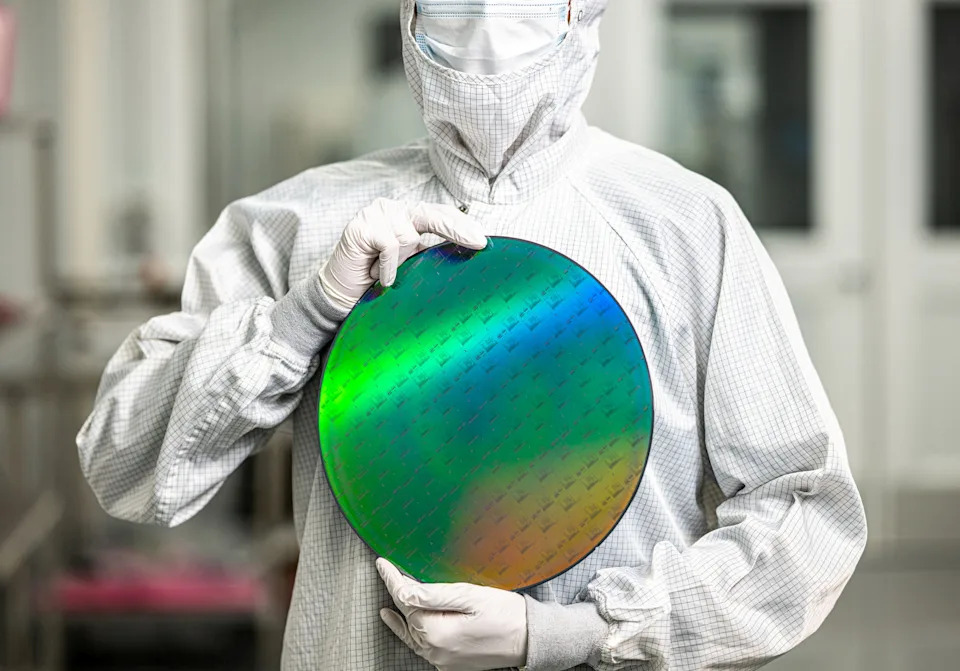Why quantum stocks are still high risk
Listen and subscribe to Opening Bid on Apple Podcasts , Spotify , Amazon Music , YouTube , or wherever you find your favorite podcasts.
Investors are attempting to validate the roller-coaster quantum computing trade.
Here's one yardstick: "The way to know when a certain new industry is important is when Taiwan Semiconductor is willing to make chips for it," Bank of America semiconductor analyst Vivek Arya said on Yahoo Finance's Opening Bid podcast (see video above or listen below).
"They have said nothing about doing that," Arya continued. "So it doesn't mean that this industry is not important, it doesn't mean that it's not a very high-growth industry, but in the relative context of where the semiconductor industry is, it's still extremely, extremely small."
The quantum computing trade has been one of the more volatile trades in the market over the past six months, with good reason.
Nvidia ( NVDA ) co-founder Jensen Huang downplayed the potential for quantum computing at his Jan. 6 keynote at the Consumer Electronics Show (CES).
“If you said 15 years for very useful quantum computers, that would probably be on the early side,” Huang said. “If you said 30, it’s probably on the late side. But if you picked 20, I think a whole bunch of us would believe it.”
Watch: Google is a monopoly, warns founder of search competitor

Then, fellow tech billionaire and Meta ( META ) co-founder Mark Zuckerberg tossed cold water on quantum computing.
Zuckerberg said on the Joe Rogan podcast on Jan. 10 that he sees quantum's potential as still a "decade-plus out."
“I’m not really an expert on quantum computing — my understanding is that’s still quite a ways off from being a very useful paradigm,” Zuckerberg said.
The downbeat commentary wreaked havoc on the red-hot quantum computing trade, which kicked off in early December 2024 when Google ( GOOG ) unveiled its high-powered quantum chip , dubbed Willow.
D-Wave Quantum ( QBTS ) and Rigetti Computing ( RGTI ) — the two main quantum trades being played by retail investors — are up 2% and down 38%, respectively, year to date.
"There is the possibility that [Jensen Huang] could be wrong," Microsoft co-founder Bill Gates told me on the Opening Bid podcast in February . "There is the possibility in the next three to five years that one of these techniques would get enough true logical qubits to solve some very tough problems. And Microsoft is a competitor in that space."
Huang tried to walk back his bearish comments at Nvidia's GTC gathering last week in a roundtable with top quantum computing CEOs.
“I think there is an unnecessary expectation, and it actually sets the industry back, frankly — an unnecessary expectation that somehow the quantum computer is going to be better at spreadsheets,” Huang reportedly said.
“But there are some things that simply won’t get solved without quantum computing,” Huang added.
However, the damage to what had become 2025's hottest momentum trade has been done.
Rigetti's stock is up 484% in the past 12 months after being up more than 1,000% at one point. D-Wave had been up more than 550%.
The sharp pullbacks should remind investors that the companies in the space are in their infancy and may not have the future sales and profits to justify currently rich valuations.
"The entire [quantum] industry is about $2 billion at most, right? Some of these public companies, you know, their annual sales might be $100 million," Arya explained. "So it's still in that [infancy] stage. And, to put this $2 billion in context, the semiconductor industry's sales will be $700 billion."
Three times each week, I field insight-filled conversations and chats with the biggest names in business and markets on Opening Bid . You can find more episodes on our video hub or watch on your preferred streaming service .
Brian Sozzi is Yahoo Finance's Executive Editor. Follow Sozzi on X @BrianSozzi , Instagram , and LinkedIn

